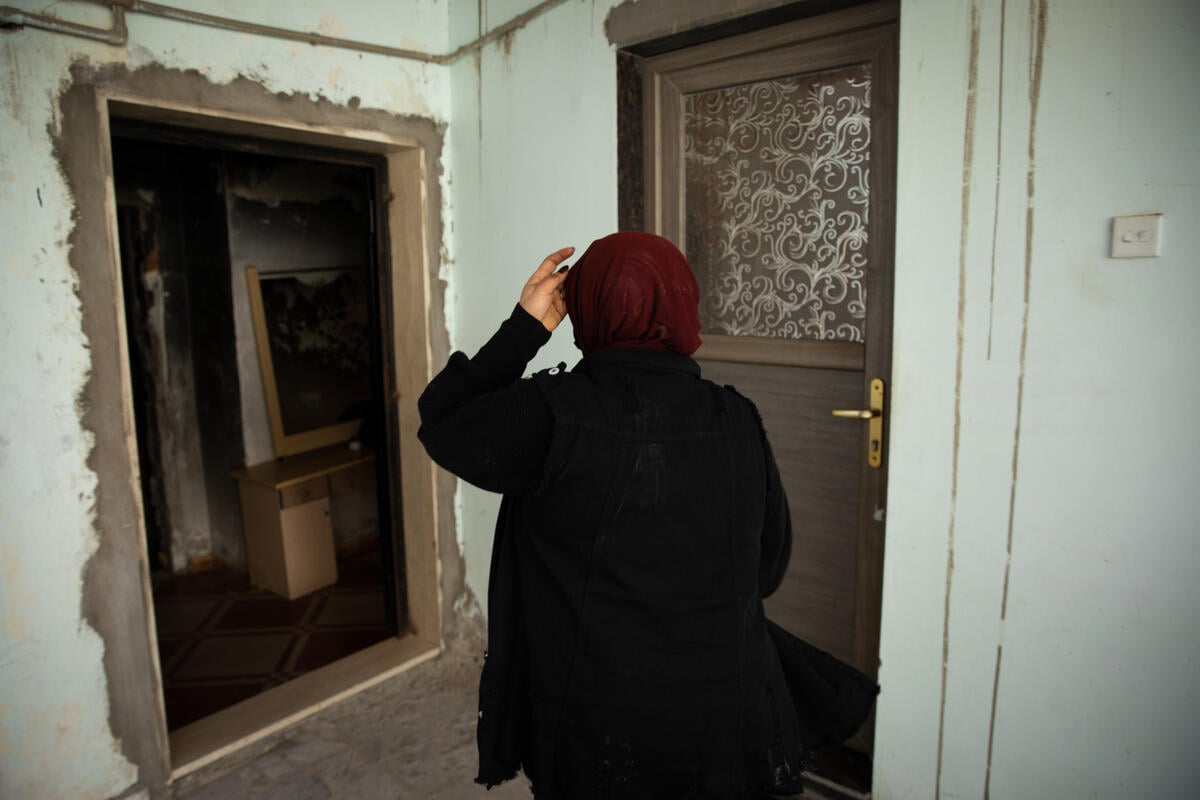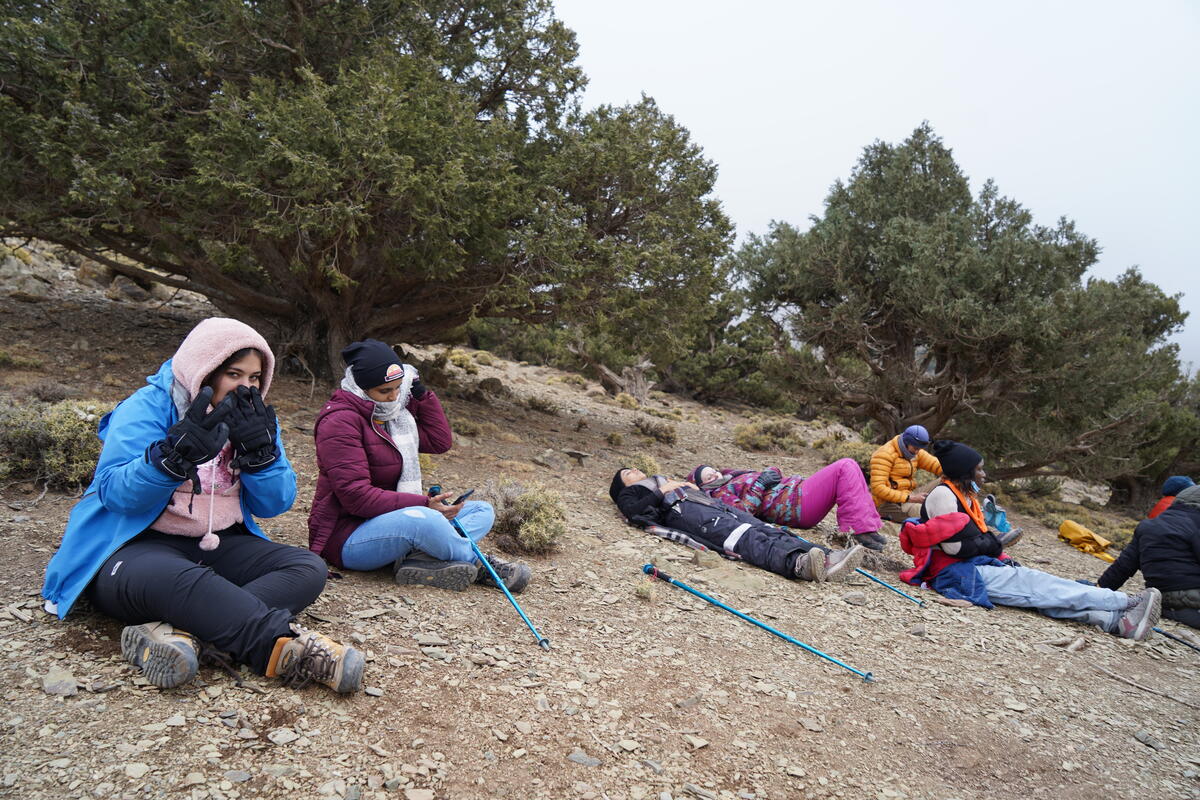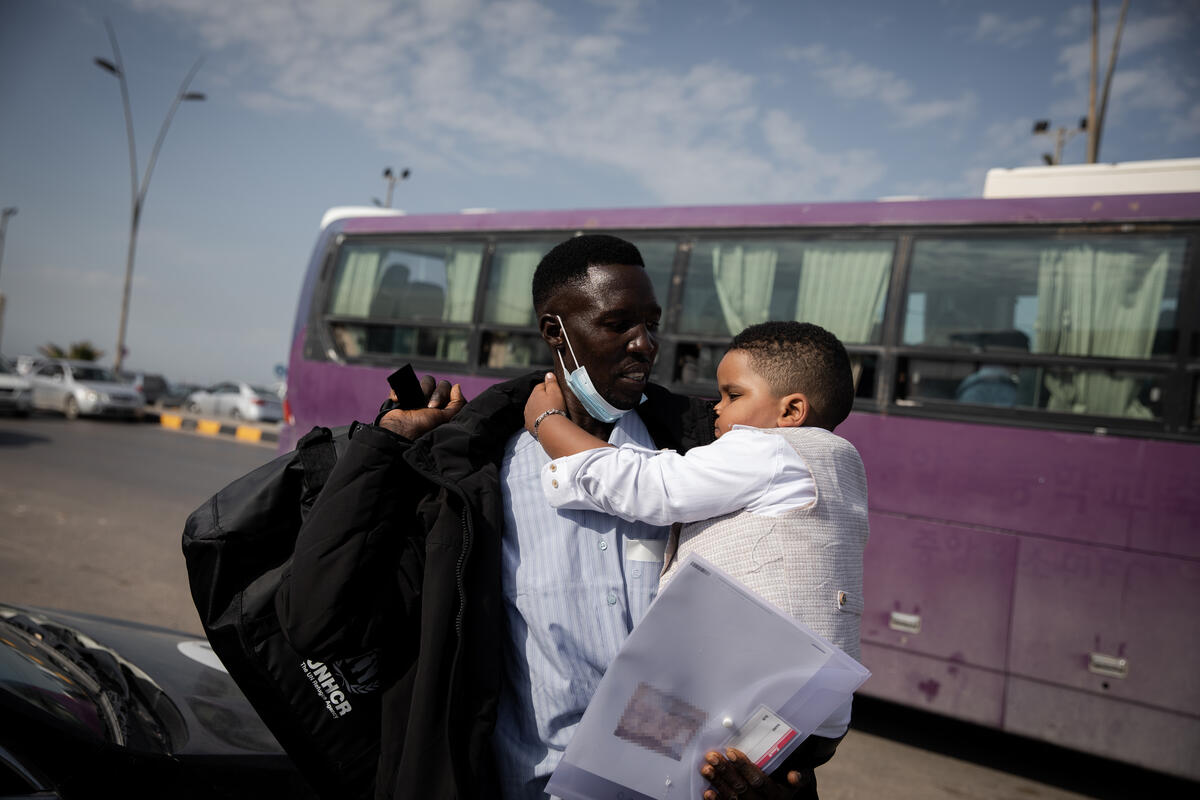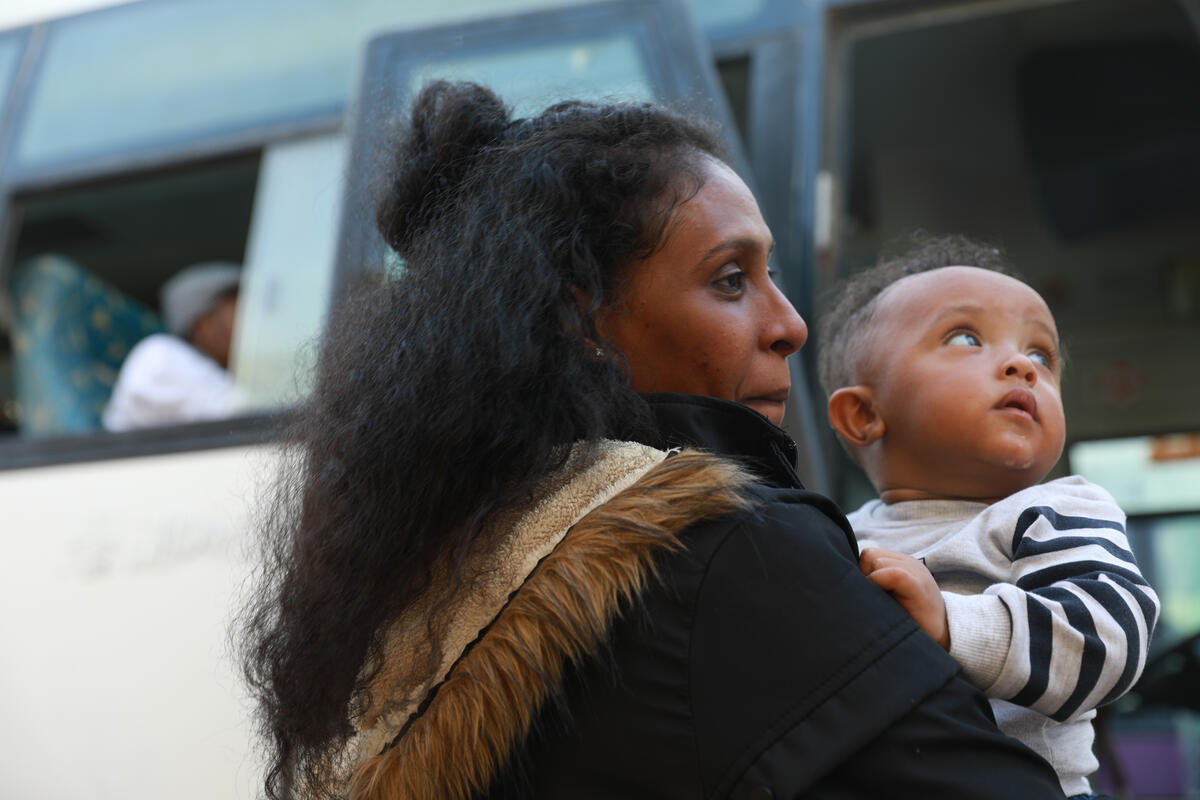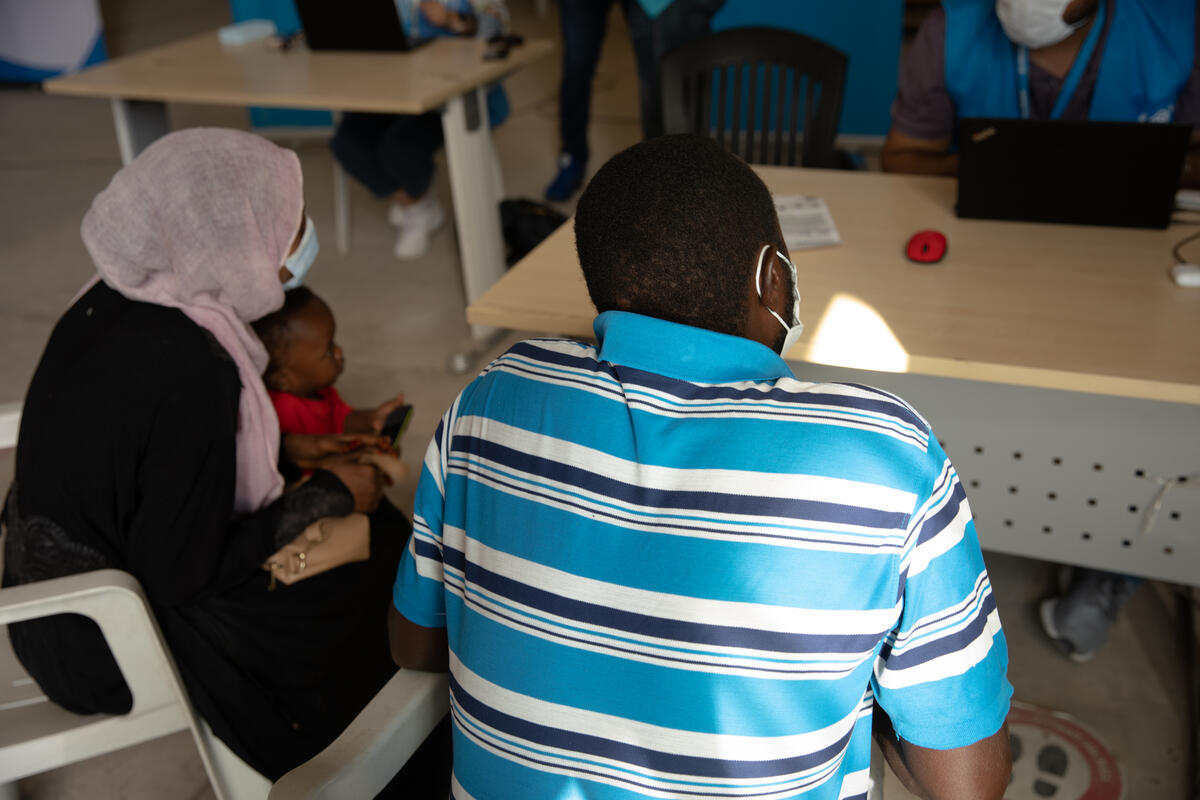Numbers of internally displaced in Libya double since September
Numbers of internally displaced in Libya double since September
In Libya, the number of people displaced within the country has almost doubled from an estimated 230,000 last September to more than 434,000 amid escalating fighting this year in different areas.
The internally displaced comprise 83,697 families, according to countrywide data collected by UNHCR and its partners from local crisis committees, municipalities and non-government organizations (NGOs) directly involved in providing assistance to IDPs, including distribution of food and non-food aid.
The numbers could be higher. UNHCR has limited access and is running its operation in Libya by remote management. We rely heavily on local partners, who are themselves unable to reach all affected areas because of the volatile situation. This also reduces communication and monitoring and for these reasons their figures are an estimate.
About a quarter of the IDP population (105,000), the largest bloc, is located in the eastern city of Benghazi, where UNHCR has been working with the municipality as well as local and international NGOs to distribute items such as mattresses, blankets and kitchen sets to some 6,000 of the most vulnerable IDPs between March and June.
The main areas of concern in Benghazi relate to the collapse of the health sector, the closure of more than 60 schools as well as universities, criminality stemming from the absence of rule of law, and frequent reports of civilian casualties as a result of fighting in the coastal city. Landmines and unexploded ordinance are also a danger to the internally displaced.
The conflict has also undermined the security of civilians and prevented the safe return of IDPs in Misrata, Tripoli, Warshafana and the Nafusa Mountains in the west, and Awbari in the south. IDPs and host communities in these areas have also been equally affected by diminishing access to education, affordable health care, electricity and other key services.
Living conditions for IDPs vary from area to area, but remain tough for many, particularly in the south. IDPs are staying in shelter ranging from rented accommodation to schools, factories and empty buildings. In the southern desert border town of Ghat some IDP families live in empty water tanks.
IDPs affected by multiple displacement face growing challenges in maintaining connection to social, economic and assistance networks. Young men are particularly vulnerable to physical aggression, arbitrary arrest and abduction.
Despite the mounting challenges, we have, through partners on the ground, distributed non-food items to more than 10,000 IDPs in Misrata since May. The distribution initially targeted newly displaced populations and vulnerable groups. This represents more than half of the IDP population in Misrata (17,000).
Other partners are distributing food and relief items to IDPs in Zintan and the Nafusa Mountains area (70,000), Warshafana (30,000), Zawiyah (20,000) and various locations around Tripoli (more than 30,000). The situation of IDPs continues to be highly fluid in most areas, but particularly around Tripoli and Warshafana, where the destruction of homes prevents the return of IDPs and remains a critical concern.
With sporadic fighting in the south and a resumption of tribal tensions between the Tebu and Tuareg communities, the displacement situation threatens to become protracted with many IDPs unable to return or returning to unsustainable conditions such as in the border province of Awbari. Access to southern Libya and delivery of relief items remains a challenge for us because of conflict and disrupted supply chains.
In Libya, UNHCR is also providing medical assistance to refugees and asylum-seekers in urban areas and financial support to the most vulnerable in Tripoli and Benghazi. [There are almost 28,000 registered refuges and some 8,900 asylum-seekers] We are also providing critical non-food items, hygiene kits and other humanitarian assistance to people held in detention after being rescued or intercepted at sea by the Libyan Coastguard, or arrested on land for lack of legal residence permit, in the course of our protection monitoring and advocacy for alternatives to detention for persons of concern.
For more information on this topic, please contact:
- In Tunis, Marwa Baitelmal on mobile +216 228 344 31
- In Geneva, Leo Dobbs on mobile +41 79 883 6347



